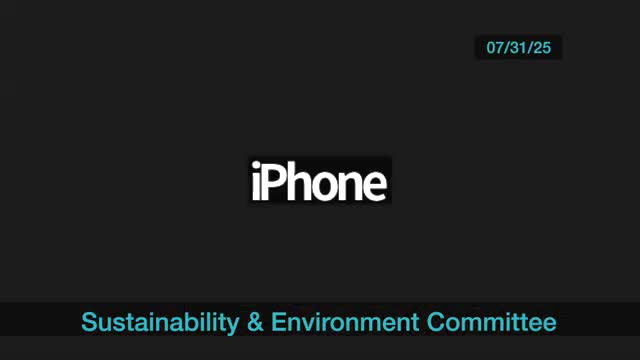Springfield Council Discusses Urban Forestry Ordinance Impact on Development
August 03, 2025 | Springfield City, Hampden County, Massachusetts
This article was created by AI summarizing key points discussed. AI makes mistakes, so for full details and context, please refer to the video of the full meeting. Please report any errors so we can fix them. Report an error »

The Springfield City Council's Sustainability & Environment Committee convened on July 31, 2025, to discuss a proposed ordinance aimed at enhancing urban forestry and its implications for local development. The meeting highlighted the ongoing challenges developers face in Springfield, particularly concerning the housing shortage and bureaucratic hurdles.
A key point of discussion was the proposed requirement for developers to maintain a 25% tree canopy on properties of 5,000 square feet or larger. Councilor Govan expressed concerns that this could complicate development efforts, potentially increasing setbacks and making it difficult to build on smaller lots. He emphasized the need for clarity on how the canopy requirement would affect property development, particularly in areas with existing eyesores.
Amy Loisel, a professor and president of the Springfield Conservation and Nature Stewardship, defended the ordinance, stating that it is designed to integrate climate change considerations into urban planning. She explained that the ordinance focuses on preserving mature trees, which are essential for cooling urban areas, rather than hindering development. Loisel noted that the ordinance is not intended to impose additional setbacks but rather to ensure that a percentage of trees is preserved during development.
The committee also discussed the importance of incentivizing developers to utilize existing properties rather than clear-cutting forested areas. Councilor Domino highlighted the need for further input from developers, particularly minority developers, who may face additional challenges in the city.
The committee plans to hold another meeting in mid to late August to gather more feedback from developers and stakeholders, aiming to refine the ordinance and address concerns raised during the discussion. The outcome of these discussions could significantly impact Springfield's approach to urban development and environmental sustainability.
A key point of discussion was the proposed requirement for developers to maintain a 25% tree canopy on properties of 5,000 square feet or larger. Councilor Govan expressed concerns that this could complicate development efforts, potentially increasing setbacks and making it difficult to build on smaller lots. He emphasized the need for clarity on how the canopy requirement would affect property development, particularly in areas with existing eyesores.
Amy Loisel, a professor and president of the Springfield Conservation and Nature Stewardship, defended the ordinance, stating that it is designed to integrate climate change considerations into urban planning. She explained that the ordinance focuses on preserving mature trees, which are essential for cooling urban areas, rather than hindering development. Loisel noted that the ordinance is not intended to impose additional setbacks but rather to ensure that a percentage of trees is preserved during development.
The committee also discussed the importance of incentivizing developers to utilize existing properties rather than clear-cutting forested areas. Councilor Domino highlighted the need for further input from developers, particularly minority developers, who may face additional challenges in the city.
The committee plans to hold another meeting in mid to late August to gather more feedback from developers and stakeholders, aiming to refine the ordinance and address concerns raised during the discussion. The outcome of these discussions could significantly impact Springfield's approach to urban development and environmental sustainability.
View full meeting
This article is based on a recent meeting—watch the full video and explore the complete transcript for deeper insights into the discussion.
View full meeting
